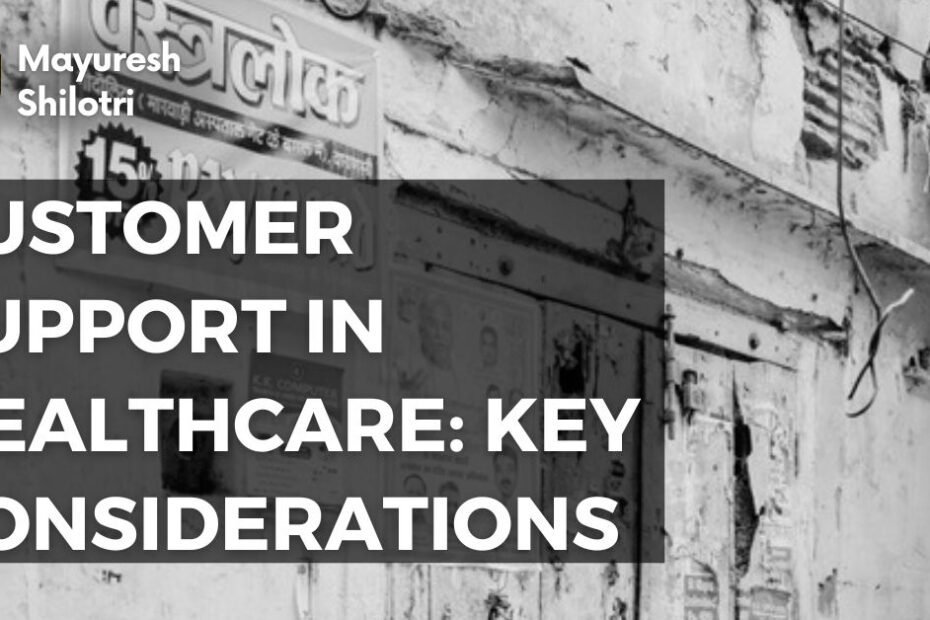Customer support in healthcare is not merely an ancillary service; it is a critical component that can significantly influence patient outcomes and satisfaction. In an industry where the stakes are incredibly high, effective customer support can lead to improved patient engagement, adherence to treatment plans, and overall health outcomes. Patients often face complex medical issues, and having a reliable support system can alleviate their concerns, making them feel valued and understood.
This is particularly important in healthcare, where patients may be dealing with anxiety, fear, or confusion regarding their conditions and treatment options. Moreover, the healthcare landscape is evolving rapidly, with increasing competition among providers. Patients today have more choices than ever before, and their expectations for service quality are rising.
They seek not only effective medical care but also a positive experience throughout their healthcare journey. Exceptional customer support can differentiate a healthcare provider from its competitors, fostering loyalty and encouraging word-of-mouth referrals. In this context, customer support becomes a strategic asset that can enhance a provider’s reputation and ultimately contribute to its success.
Key Takeaways
- Customer support in healthcare is crucial for patient satisfaction and overall experience.
- Healthcare customers have unique needs that require personalized and empathetic support.
- Customer support staff in healthcare need specialized training and education to effectively assist patients.
- Technology can be utilized to streamline and enhance customer support processes in healthcare.
- Building trust, empathy, and addressing language and cultural barriers are essential in healthcare customer interactions.
Understanding the Unique Needs of Healthcare Customers
Healthcare customers are a diverse group with varying needs, expectations, and experiences. Unlike traditional consumer markets, healthcare customers often approach services with a unique set of concerns that stem from their medical conditions, financial situations, and emotional states. For instance, a patient diagnosed with a chronic illness may require ongoing support and education about managing their condition, while a new parent may need guidance on pediatric care.
Understanding these nuances is essential for providing tailored support that meets individual needs. Additionally, the emotional aspect of healthcare cannot be overlooked. Patients often experience fear, uncertainty, and vulnerability when navigating their health issues.
This emotional landscape necessitates a customer support approach that is not only informative but also compassionate and reassuring. Support staff must be trained to recognize these emotional cues and respond appropriately, ensuring that patients feel heard and supported throughout their healthcare journey. By acknowledging the unique needs of healthcare customers, providers can create a more personalized experience that fosters trust and satisfaction.
Training and Education for Customer Support Staff
The effectiveness of customer support in healthcare largely hinges on the training and education of support staff. It is imperative that these individuals possess not only knowledge about the healthcare system but also the skills necessary to communicate effectively with patients. Comprehensive training programs should encompass a variety of topics, including medical terminology, patient rights, and the intricacies of insurance processes.
This foundational knowledge equips staff to address inquiries accurately and efficiently. Moreover, training should extend beyond technical knowledge to include soft skills such as active listening, empathy, and conflict resolution. Role-playing scenarios can be particularly beneficial in helping staff practice these skills in a safe environment.
For example, simulating a conversation with a distressed patient can prepare support staff to handle real-life situations with grace and professionalism. Continuous education is also vital; as healthcare regulations and technologies evolve, ongoing training ensures that customer support staff remain informed and capable of providing the highest level of service.
Utilizing Technology to Enhance Customer Support
In today’s digital age, technology plays a pivotal role in enhancing customer support within the healthcare sector. The integration of advanced tools such as chatbots, telehealth platforms, and customer relationship management (CRM) systems can streamline communication and improve accessibility for patients. For instance, chatbots can provide immediate responses to common inquiries, allowing patients to receive assistance outside of regular office hours.
This not only improves patient satisfaction but also alleviates the burden on support staff. Telehealth platforms have revolutionized the way patients interact with healthcare providers, enabling virtual consultations that save time and resources for both parties. These technologies facilitate timely communication and ensure that patients can access care without the barriers of distance or transportation.
Furthermore, CRM systems allow healthcare organizations to track patient interactions and preferences, enabling personalized follow-ups and targeted communication strategies. By leveraging technology effectively, healthcare providers can enhance their customer support capabilities and create a more efficient and responsive service model.
Building Trust and Empathy in Customer Interactions
Trust is a cornerstone of effective customer support in healthcare. Patients must feel confident that their concerns will be addressed with sincerity and professionalism. Building this trust begins with establishing clear communication channels where patients feel comfortable expressing their needs and concerns.
Support staff should be trained to actively listen to patients, validating their feelings and demonstrating empathy throughout interactions. Empathy goes beyond mere understanding; it involves connecting with patients on an emotional level. For example, when a patient expresses anxiety about an upcoming procedure, a supportive response might include acknowledging their feelings while providing reassurance about the process.
This empathetic approach fosters a sense of partnership between patients and providers, encouraging open dialogue and collaboration in care decisions. By prioritizing trust and empathy in customer interactions, healthcare organizations can cultivate lasting relationships that enhance patient loyalty and satisfaction.
Addressing Language and Cultural Barriers in Customer Support
In an increasingly multicultural society, addressing language and cultural barriers is essential for effective customer support in healthcare. Patients from diverse backgrounds may face challenges in understanding medical terminology or navigating the healthcare system due to language differences. To bridge this gap, healthcare organizations should consider employing multilingual staff or utilizing professional translation services to ensure clear communication.
Cultural competence is equally important; understanding the cultural beliefs and practices of patients can significantly impact their healthcare experience. For instance, certain cultures may have specific views on medical interventions or family involvement in decision-making processes. Training customer support staff in cultural sensitivity can help them navigate these complexities with respect and understanding.
By proactively addressing language and cultural barriers, healthcare providers can create an inclusive environment that fosters trust and improves patient engagement.
Handling Sensitive and Confidential Information with Care
In the realm of healthcare, handling sensitive and confidential information is paramount. Patients entrust their personal health data to providers with the expectation that it will be protected with the utmost care. Customer support staff must be well-versed in privacy regulations such as HIPAA (Health Insurance Portability and Accountability Act) to ensure compliance while interacting with patients.
This includes understanding what information can be shared and with whom. Moreover, training should emphasize the importance of discretion when discussing patient information, whether in person or over the phone. For example, support staff should be trained to avoid discussing sensitive details in public areas where they could be overheard.
Implementing secure communication channels for sharing information further enhances patient trust. By prioritizing confidentiality in all interactions, healthcare organizations demonstrate their commitment to protecting patient privacy while fostering a safe environment for open communication.
Managing Customer Expectations and Communication
Effective communication is key to managing customer expectations in healthcare settings. Patients often arrive with preconceived notions about their care based on previous experiences or information gathered from various sources. It is crucial for customer support staff to clarify what patients can realistically expect regarding wait times, treatment options, and follow-up procedures.
Clear communication helps mitigate misunderstandings that could lead to frustration or dissatisfaction. Additionally, proactive communication plays a vital role in keeping patients informed throughout their healthcare journey. Regular updates regarding appointment reminders, test results, or changes in treatment plans can enhance patient engagement and reduce anxiety.
For instance, sending automated reminders via text or email can help patients stay on track with their appointments while minimizing no-show rates. By establishing transparent communication practices, healthcare organizations can foster a positive relationship with patients based on mutual understanding.
Implementing Feedback and Continuous Improvement
Feedback from patients is an invaluable resource for improving customer support in healthcare settings. Organizations should actively seek input through surveys, focus groups, or direct conversations to gain insights into patient experiences. This feedback can highlight areas for improvement as well as identify strengths within the current support system.
Once feedback is collected, it is essential to analyze the data systematically to identify trends or recurring issues. For example, if multiple patients express dissatisfaction with wait times for phone support, this may indicate a need for additional staffing or improved processes. Implementing changes based on patient feedback demonstrates a commitment to continuous improvement and reinforces the idea that patient voices matter in shaping the quality of care provided.
Collaborating with Other Healthcare Departments for Seamless Support
Collaboration among various departments within a healthcare organization is crucial for delivering seamless customer support. When different teams—such as billing, clinical staff, and customer service—work together effectively, it creates a cohesive experience for patients navigating complex systems. For instance, if a patient has questions about their insurance coverage related to a specific treatment plan, customer support staff should be able to collaborate with billing specialists to provide accurate information promptly.
Interdepartmental meetings or regular communication channels can facilitate this collaboration by ensuring that all teams are aligned on policies and procedures. Additionally, cross-training staff across departments can enhance understanding of each team’s roles and responsibilities, leading to more efficient problem-solving when issues arise. By fostering collaboration among departments, healthcare organizations can create a unified approach to customer support that enhances the overall patient experience.
Measuring and Evaluating Customer Support Effectiveness
To ensure that customer support efforts are yielding positive results, it is essential for healthcare organizations to implement robust measurement and evaluation strategies. Key performance indicators (KPIs) such as response times, resolution rates, patient satisfaction scores, and feedback trends provide valuable insights into the effectiveness of customer support initiatives. Regularly reviewing these metrics allows organizations to identify areas where improvements are needed or where successful strategies can be replicated across departments.
For example, if data reveals that certain types of inquiries consistently take longer to resolve than others, targeted training or process adjustments may be warranted to enhance efficiency. Additionally, benchmarking against industry standards can provide context for evaluating performance relative to peers in the field. By prioritizing measurement and evaluation of customer support effectiveness, healthcare organizations can continuously refine their approaches to meet evolving patient needs.
In a recent article on customer development, the author discusses 8 key lessons learned from scaling a growth function over 30 months. This article provides valuable insights that can be applied to improving customer support in healthcare. To read more about this topic, check out the article here.





